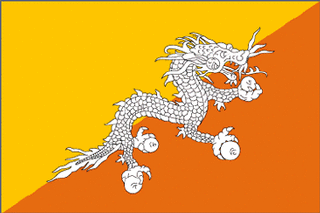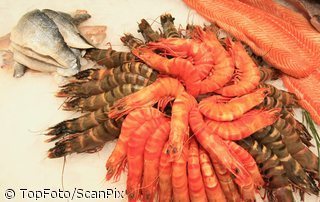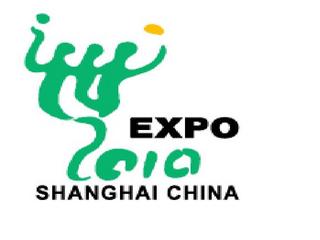The EU has decided to turn to Russia for some of its oil needs to reduce the continent's dependence on OPEC.
Published:
16 October 2000 y., Monday
A long-term agreement with Russia would benefit Europe by allowing it to diversify its energy sources, but it would also force EU officials into some difficult policy choices.
Russia has already indicated that its assistance would come at a price.
Russian deputy prime minister Viktor Khristenko told EU leaders in Brussels a few weeks ago that Russia wants its energy transit to bypass Ukraine. Russian officials widely suspect Ukraine of illegally siphoning off energy and pocketing the profit.
And Russian Deputy Foreign Minister Ivan Ivanov said earlier this week that Russia also wants the EU to drop its support for the Baku-Ceyhan pipeline, sponsored by the US and Turkey. The pipeline, if completed, would bypass Russia.
Observers call the EU proposal for energy cooperation with Russia the "Prodi plan," after European Commission president Romano Prodi. He was the first to present it to Russia.
The plan envisages a swap of Russian energy for EU assistance. It was largely worked out between Germany and the commission.
Russia has large energy reserves, but has little resources to exploit them. The export of gas and oil requires expensive transit facilities.
Under the Prodi plan, the EU would use its political influence and technical assistance to channel foreign investment into Russian energy transit. In return, Russia would guarantee the EU a significant supply of energy for the next 20 years.
Emerson says the EU is likely to promote an even-handed approach to transit routes, supporting the idea of multiple pipelines. This is borne out by the Commission's external relations spokesman Gunner Wiegand, who says the EU has no official strategic preferences. According to Wiegand, the deciding factors as to transit routes must be commercial viability, private sector interest and their multiplicity.
Yet the placing of transit routes has obvious geo-political implications.
Emerson says that while Russia and the United States are involved in what he called "great games" of strategy, the EU was not willing to view its choices in such terms.
The EU does not have a cohesive energy strategy at this stage, but has been prompted into formulating such a strategy by the recent rise in world oil prices and by widespread protests by citizens complaining about high taxes on fuel.
Šaltinis:
rferl.org
Copying, publishing, announcing any information from the News.lt portal without written permission of News.lt editorial office is prohibited.
The most popular articles
 Mr. Olli Rehn, European Union Commissioner, and Mr. Dominique Strauss-Kahn, Managing Director of the International Monetary Fund (IMF), issued the following joint statement on Greece.
more »
Mr. Olli Rehn, European Union Commissioner, and Mr. Dominique Strauss-Kahn, Managing Director of the International Monetary Fund (IMF), issued the following joint statement on Greece.
more »
 The offering of shares of the new issue will commence on 03-05-2010.
more »
The offering of shares of the new issue will commence on 03-05-2010.
more »
 The World Bank today approved a $12 million IDA credit to Bhutan, designed to improve infrastructure services in parts of the capital city of Thimphu where no formal services are currently available.
more »
The World Bank today approved a $12 million IDA credit to Bhutan, designed to improve infrastructure services in parts of the capital city of Thimphu where no formal services are currently available.
more »
 Fisheries ministers and stakeholders alike will be discussing the future shape of the EU's Common Fisheries Policy at two major events in Spain over the next days. On 2 and 3 May, in La Coruña, the Commission and the Spanish Presidency are organising a large stakeholder conference on the reform of the Common Fisheries Policy.
more »
Fisheries ministers and stakeholders alike will be discussing the future shape of the EU's Common Fisheries Policy at two major events in Spain over the next days. On 2 and 3 May, in La Coruña, the Commission and the Spanish Presidency are organising a large stakeholder conference on the reform of the Common Fisheries Policy.
more »
 Asia is leading the global recovery and the region’s contribution to global growth will continue to exceed that of other regions in the next two years, the International Monetary Fund (IMF) said today in its latest Regional Economic Outlook (REO) for Asia and the Pacific.
more »
Asia is leading the global recovery and the region’s contribution to global growth will continue to exceed that of other regions in the next two years, the International Monetary Fund (IMF) said today in its latest Regional Economic Outlook (REO) for Asia and the Pacific.
more »
 The EBRD is supporting the modernization of the electricity distribution network and the development of renewable energy sources in Poland with a PLN 800 million loan (equivalent to approximately €205 million) to the Energa energy group in order to help the company strengthen its power grid.
more »
The EBRD is supporting the modernization of the electricity distribution network and the development of renewable energy sources in Poland with a PLN 800 million loan (equivalent to approximately €205 million) to the Energa energy group in order to help the company strengthen its power grid.
more »
 At the beginning of the summer this year, Vilnius will become the capital of the Baltic Sea region. On 1-2 June 2010, the city will host the Baltic Sea States Summit and the Baltic Development Forum (BDF) Summit.
more »
At the beginning of the summer this year, Vilnius will become the capital of the Baltic Sea region. On 1-2 June 2010, the city will host the Baltic Sea States Summit and the Baltic Development Forum (BDF) Summit.
more »
 Visitors of the World Expo 2010, which will open in the Chinese city of Shanghai on May 1st under the slogan “Better City, Better Life” and will last for 184 days until the end of October, are kindly invited to get into a hot air balloon at the Lithuanian Pavilion.
more »
Visitors of the World Expo 2010, which will open in the Chinese city of Shanghai on May 1st under the slogan “Better City, Better Life” and will last for 184 days until the end of October, are kindly invited to get into a hot air balloon at the Lithuanian Pavilion.
more »
 According to preliminary data, unaudited net loss sustained over the first quarter of the year 2010 by SEB Bank is LTL 59,4 million (EUR 17,2 million) and that by SEB Bank Group is LTL 80,3 million (EUR 23,3 million).
more »
According to preliminary data, unaudited net loss sustained over the first quarter of the year 2010 by SEB Bank is LTL 59,4 million (EUR 17,2 million) and that by SEB Bank Group is LTL 80,3 million (EUR 23,3 million).
more »
 European Globalisation Adjustment fund (EGF) aid must be delivered faster and more simply to unemployed workers hit by the financial crisis or globalisation, concluded the Budgets and Employment committees after evaluating the fund on Wednesday.
more »
European Globalisation Adjustment fund (EGF) aid must be delivered faster and more simply to unemployed workers hit by the financial crisis or globalisation, concluded the Budgets and Employment committees after evaluating the fund on Wednesday.
more »